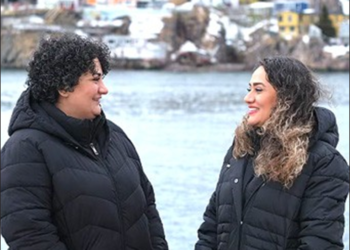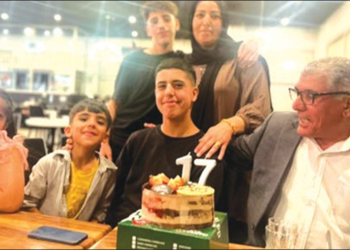All three were born in Iran and are in their 30s. Two are men and one is a woman. Two are American citizens and one is Canadian, a fact that did not seem to have any impact on the issuance of the presidential award. Two are graduates of the Sharif University of Technology and the third had all his higher education in the North America.
The Presidential Early Career Awards for Scientists and Engineers is the highest honor bestowed by the United States government on science and engineering professionals in the early stages of their independent research careers.
The award embodies the high priority the federal government puts on motivating scientists and engineers to tackle challenges and 
Obama said, “It is inspiring to see the innovative work being done by these scientists and engineers as they ramp up their careers—careers that I know will be not only personally rewarding but also invaluable to the nation. That so many of them are also devoting time to mentoring and other forms of community service speaks volumes about their potential for leadership, not only as scientists, but as model citizens.”
The woman among the trio is Yasamin C. Mostofi, 35, an assistant professor at the University of New Mexico in the Department of Electrical and Computer Engineering. She received her BS from Sharif in 1997 and then came to the United States to Stanford University where she got her masters in 1999 and her doctorate in 2004.
Mostofi received the award for groundbreaking research on compressive-sampling-enabled mobile sensor networks, and for dedicated educational activities involving both high school and community college students in robotics, with a particular emphasis on motivating Native American students to pursue engineering  careers.
careers.
In a recent interview, she said, “My interest in engineering goes back to my high school days where I found math and physics classes fascinating. Unfortunately, with few women in engineering fields back then—and even now—I had to fight a good battle with my family to convince them to let me go into engineering as opposed to medicine. Fortunately, I ranked 11th in the national university entrance exam in Iran, which allowed me to enroll in the electrical engineering program at Sharif University of Technology, the best school of engineering in Iran.”
As for her personal life, Mostofi says, “The excitements of junior faculty lifestyle barely leave time for anything outside of work. Over the years, I have enjoyed the following: playing piano, learning santur—an ancient Persian musical instrument, writing and reading Persian poems in the modern style, painting and tae kwon do.”
The award also went to Ali Khademhosseini, who turns 36 this month and was born in Tehran. He is an Iranian-Canadian academic and an associate professor at Harvard Medical School and the Wyss Institute for Biologically Inspired Engineering. He is internationally known for his research in the area of biomedical microdevices and biomaterials.
He has developed a number of methods for controlling the stem cell microenvironment using microscale devices and to engineer biomaterials for tissue engineering.
He received his PhD in bioengineering at MIT and his undergraduate and masters degrees, both in chemical engineering, at the University of Toronto in Ontario.
The third recipient is Amir Salman Avestimehr, 30, currently an assistant professor at the School of Electrical and Computer Engineering at Cornell University.
He received his Ph.D. in 2008 and M.S. degree in 2005 in electrical engineering and computer science, both from the University of California, Berkeley. Prior to that, he obtained his B.S. in electrical engineering from Sharif University of Technology in 2003.
His research interests include information theory, communications and networking.


















